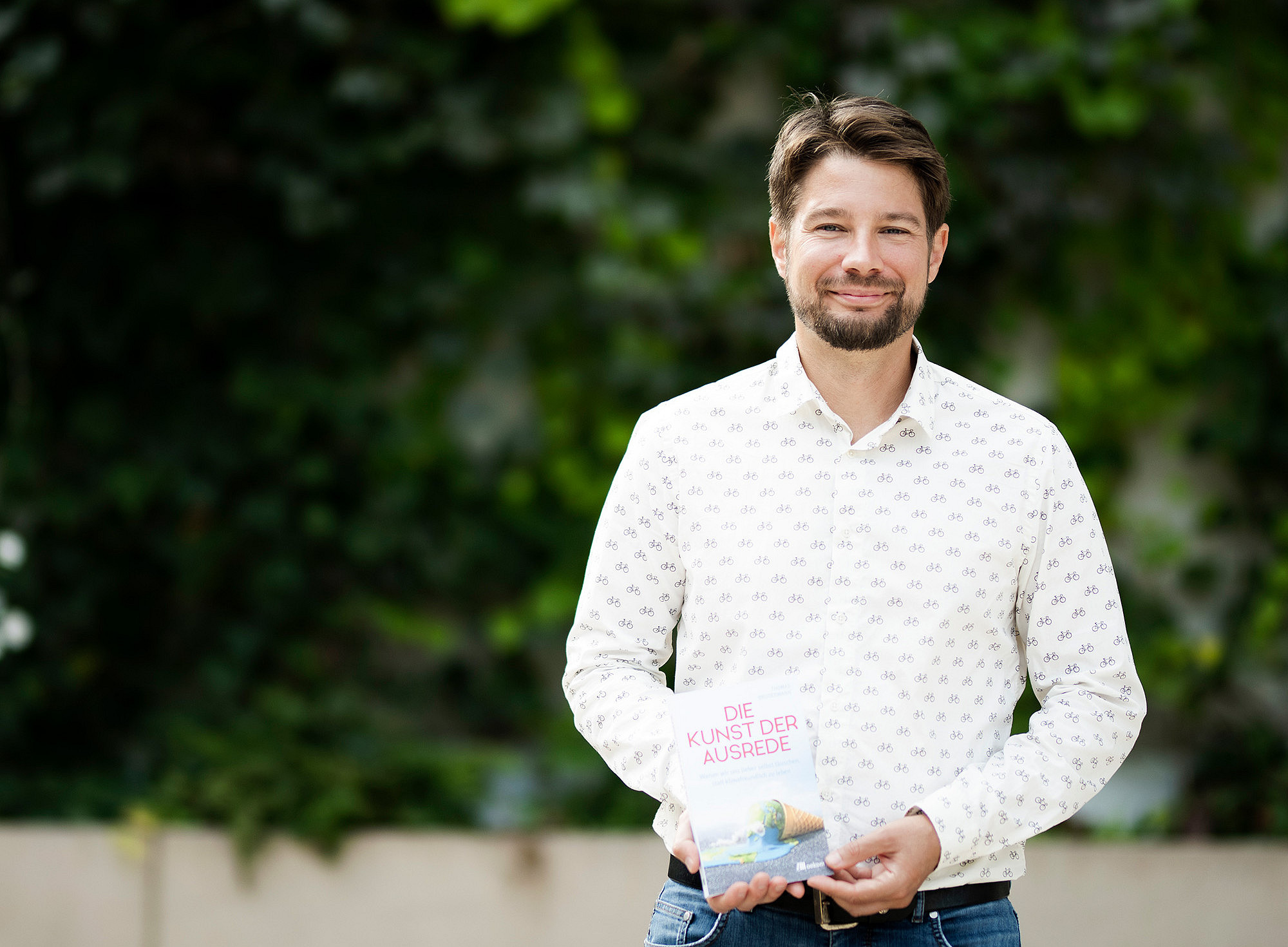Dass der erhobene Zeigefinger und Angstmache die Gesellschaft auf lange Sicht nicht zu klimafreundlichem Handeln führen werden, meint Thomas Brudermann von der Uni Graz. Der Professor für Innovations- und Nachhaltigkeitsforschung und promovierte Psychologe hat einen ganz anderen Ansatz: „Wir müssen den Ausreden, mit denen sich Menschen rechtfertigen, wenn ihnen Klimaschutz zu anstrengend oder unbequem wird, achtsam begegnen“, sagt Brudermann. „Denn viele unserer Entscheidungen sind durch äußere Umstände bedingt. Für Klimafreundlichkeit braucht es nicht nur den guten Willen, sondern auch Strukturen, die entsprechendes Verhalten ermöglichen.“
Der Wissenschaftler, der beim K3-Kongress an der Uni Graz eine Keynote hält, setzt auf Klimakommunikation mit Humor. „Wenn sich Menschen angesichts der Klimakatastrophe hilflos und gelähmt fühlen, ist das Gift für die Motivation und die Akzeptanz struktureller Veränderungen. Mit Achtsamkeit und Humor lassen sich die Augen und Herzen für die zentrale Herausforderung einer radikalen Neuorientierung aber wieder öffnen“, ist Brudermann überzeugt. In diesem Geist hat er auch sein Buch „Die Kunst der Ausrede. Warum wir uns lieber selbst täuschen, statt klimafreundlich zu leben“ geschrieben. Es ist im Oekom Verlag erschienen und 2023 mit dem „Eunice Foote Preis“ für wissenschaftliche Klimakommunikation ausgezeichnet worden. Nach seiner Übersetzung ins Koreanische war die Publikation im Sommer eines der meistverkauften Umweltbücher in Korea.
Der K3-Kongress für Klimakommunikation bringt Akteur:innen aus Wissenschaft, Wirtschaft, Politik, Journalismus und Zivilgesellschaft zusammen. Die Teilnehmenden aus dem gesamten deutschsprachigen Raum diskutieren anhand von Best-Practice-Beispielen darüber, wie zielgerichtete Kommunikation dazu beitragen kann, eine klimafreundliche Haltung zu verbreiten und Veränderungen auf den Weg zu bringen. Die diesjährige Veranstaltung an der Uni Graz ist bereits der vierte K3-Kongress. Hinter dem Format, das 2017 ins Leben gerufen wurde, steht ein Veranstalterbündnis aus Deutschland, Österreich und der Schweiz, dem hierzulande das Climate Change Center Austria (CCCA) angehört.
Die Uni Graz unterstützt die Anliegen der Veranstalter mit Nachdruck: „Der K3-Kongress bietet die Möglichkeit der Vernetzung, des Erfahrungsaustausches und des Kennenlernens neuer Kommunikationsformen, um Wissen als Grundlage für den Klimaschutz in die Breite zu tragen“, unterstreicht Rektor Peter Riedler.
